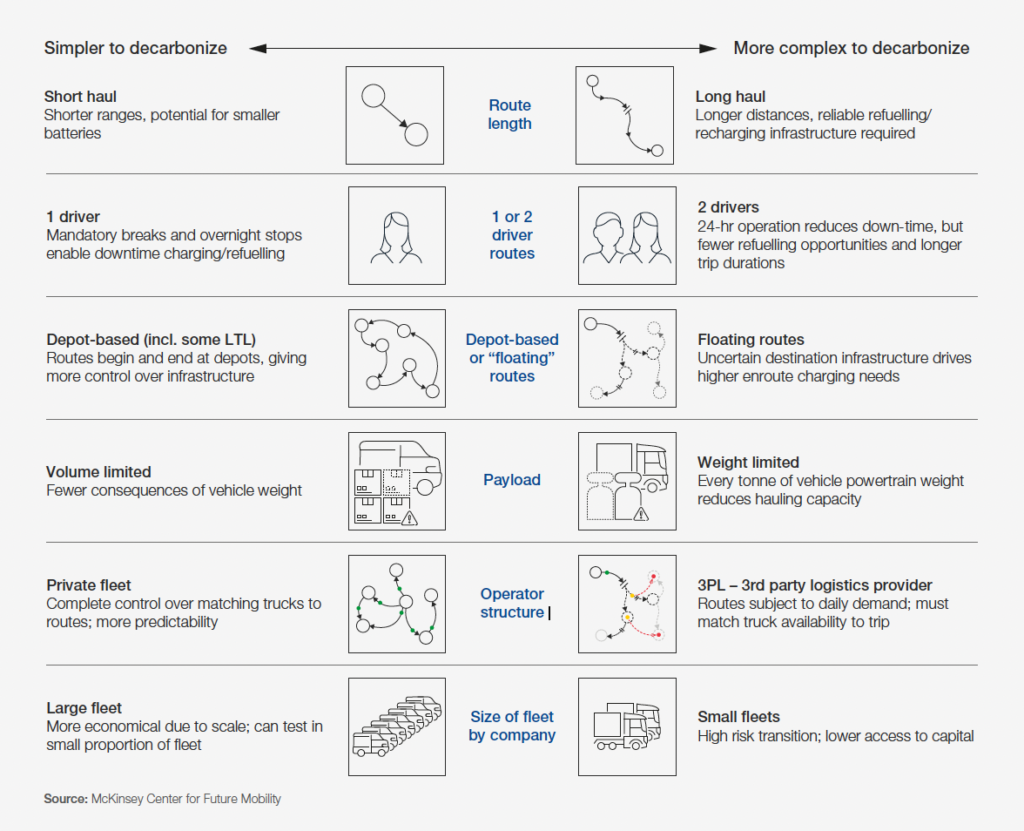Road freight currently generates 15% of European CO2 emissions. About 70% of those emissions come from medium- and heavy-duty trucking (MDT/HDT). These are the hardest-to-abate segments. Nevertheless, there is a growing consensus that the zero-emission (ZE) truck industry is on course to deliver competitive business cases for the decarbonization of these fleets – through battery electric vehicles (BEVs) and hydrogen fuel cell electric vehicles (FCEVs) that could eventually, be powered by renewable energy.
McKinsey’s modeling suggests that by 2030, 37% of new MDT and HDT sales could be zero-emission in Europe, corresponding to around 150.000 vehicles. However, at its current pace, the industry would need another 120.000 zero-emission trucks on the road annually by 2030 to achieve the 1.5°C target – equivalent to two-thirds of total trucks sold. Reaching this target may require €4 billion in additional investment in ZE trucks by 20306 and €30-40 billion for zero-emission refueling/recharging infrastructure over the period up to 2030.
Drawing on their analysis of multiple reports, RFZ’s leadership concludes that two barriers have an outsized effect on the pace of adoption. First, a lack of infrastructure for ZE truck fleets. Second, gaps in vehicle and infrastructure financing for fleet owners to address increasing capital expenditure RFZ also found that multiple solutions can be applied. Still, these will need to happen through coordinated collaboration across the value chain.

The outcome of the analysis confirms initial research on critical barriers facing the industry but also reveals three solution domains that require greater emphasis:
1. Policy framework: Long-term stable policies and incentives to improve the total cost of ownership (TCO) for truck operators and infrastructure providers.
2. Innovative financing: Leasing models to help truck operators transition to zero-emission trucks more quickly and actions to reduce the uncertainty of residual values.
3. Coordinated roll-out: Deploying market-ready zero-emission vehicles and corresponding infrastructure in a coordinated way along numerous corridors.
The Road Freight Zero initiative, led by the World Economic Forum and supported by its partners, including the McKinsey Center for Future Mobility, will continue to be well-positioned to convene stakeholders, define collaborative solutions and expand ZE truck use. Road Freight Zero is committed to playing its role in supporting the entire value chain to succeed in the race to zero.
Source: Road Freight Zero initiative
